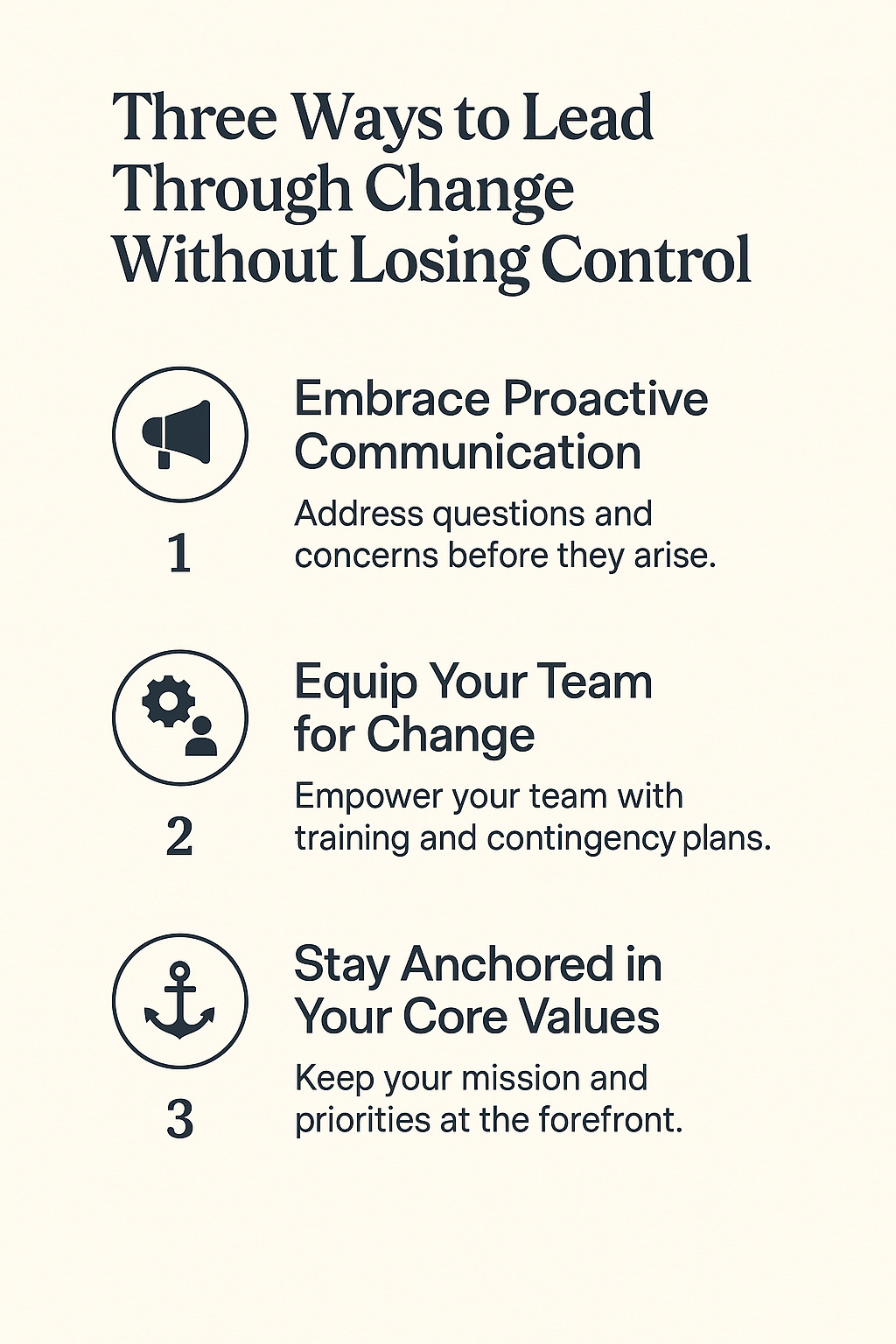Are You Leading Through Change or Reacting to It?
Is Your Leadership Guided or Reactive?
Imagine navigating a whitewater river without a paddle. The current pulls you in unexpected directions, and you find yourself constantly trying to stay afloat. Reactive leadership often feels like that… chaotic, unsteady, and exhausting.
When the current shifts, as it always does in nonprofit work and global service, many leaders find themselves scrambling to adjust. But leadership that waits to react is leadership that loses momentum. The best leaders learn how to read the current, anticipate challenges, and steer their organizations toward stability before turbulence strikes.
“Plans fail for lack of counsel, but with many advisers they succeed.”
— Proverbs 15:22
Three Ways to Lead Through Change Without Losing Control
1. Embrace Proactive Communication
Uncertainty often breeds confusion. As a leader, don’t wait for your team to come to you with questions—address their concerns before they even arise. Regularly share updates, highlight potential changes, and keep everyone aligned with the organization’s mission.
2. Equip Your Team for Change
Rather than shielding your staff from change, prepare them for it. Offer training sessions, run through contingency plans, and foster an environment where team members feel empowered to adapt. When people know what’s coming and how they’ll handle it, they’re less likely to be caught off guard.
3. Stay Anchored in Your Core Values
During periods of rapid change, it’s tempting to adjust your mission or shift your priorities. Resist that impulse. A strong, clear set of values acts like a compass in a storm. As long as your organization stays rooted in its purpose, you can move through uncertainty with confidence and clarity.
Conclusion
The river’s currents will always shift, but you don’t have to be swept away. With proactive communication, a well-prepared team, and a steadfast commitment to your mission, you can steer through even the most turbulent waters.
Where in your leadership can you start anticipating change instead of reacting to it?



